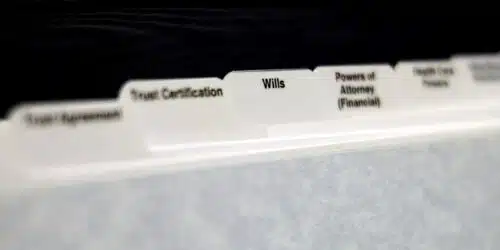Looking to appoint an estate trustee (executor) for your estate? Here are a few things to consider when making this important decision:
Are they capable?
There is no getting around it – this is a lot of work. Does your chosen estate trustee have the ability to deal with lawyers, financial institutions, insurance companies, and government agencies such as the CRA? Can they determine the necessary questions to ask? Are they able to complete lengthy and sometimes complex forms? Are they organized and capable of keeping detailed and accurate records? What are their communications skills like? They will be dealing with potentially complex matters and will need to communicate information to family members and loved ones. These can be delicate maters. All of this being said, it is crucial to appoint someone you trust. Ability is important, but trust is essential.
Are they willing?
Ask them! You do not want this important responsibility to come as a surprise to the person you have chosen to carry out this extremely important task. A very important point – please make sure that the trustee knows where to find all relevant paperwork (copies of will, insurance policies, information on accounts, necessary passwords, etc.). Delays happen when documentation cannot be found, causing additional stress to family members at an already difficult time.
Do they have the time?
Estate administration can easily take up to a year (or longer) and can be like having a part time job. Make sure to choose someone who has the time to dedicate to dealing with your legal and financial affairs.
Is one enough?
No. You should have an alternate trustee, in case the estate trustee you have designated pre-deceases you or is unable to carry out the necessary duties when the time comes. You may want to appoint two trustees, who can work together as a team – perhaps with complimentary skill sets.
Does it have to be a family member or friend?
Not at all. In fact, it may sometimes be easier to appoint estate professionals. Complex estate matters or potential family conflict may mean that it is best to avoid having a loved one as an estate trustee. If you do name a family member or friend, they may decide to hire a lawyer or estate professional to deal with the administration of your estate. Such professionals would be paid from compensation due to the estate trustee for their work from the estate.
Does it matter where they live?
For ease of estate administration, it will certainly be helpful if the estate trustee lives reasonably close to you, making it easier to deal with your assets.
If a person appoints a non-resident of Canada as estate trustee, there are likely to be tax consequences. As a rule, an estate is tax resident wherever the estate trustee happens to reside. For example, if you appoint your child who lives in Florida, your estate will be governed by the income tax laws of the United States. If the estate trustee decides to move to another country, this could also trigger some tax consequences. Tax affairs are complicated and can be expensive, and it is best to call in experts to assist when required.
In short, it’s best to pick someone who is close by and plans to remain a resident of Canada.
This blog post was written by Heather Austin-Skaret, a Partner in the Wills and Estates and Real Estate teams. She can be reached at 613-369-0356 or at Heather.Austin-Skaret@mannlawyers.com.








